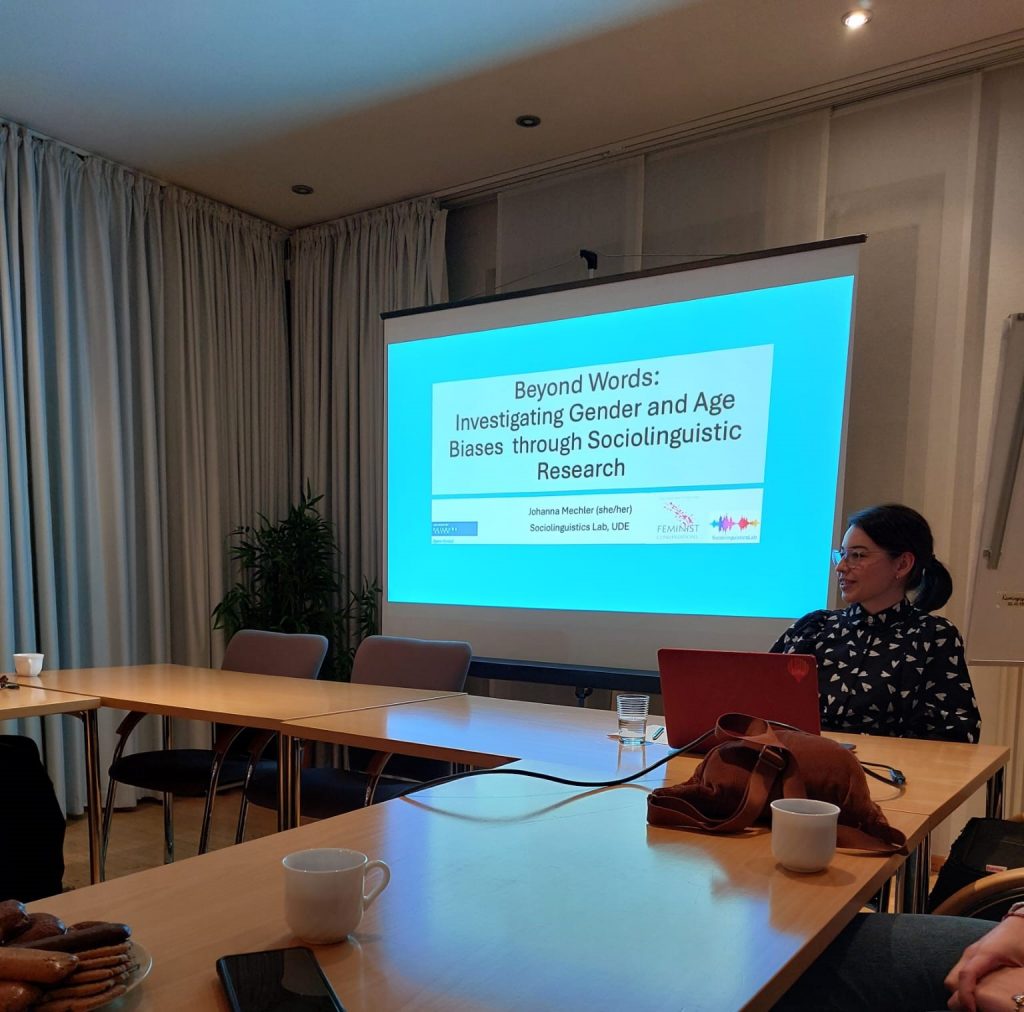In November 2023, the “Feminist Conversations”, a monthly discussion round by, for, and with women were taken up at the University of Duisburg-Essen again – and the LaVaLi team is taking part! So in case you ever wondered how research on language change across the lifespan is related to feminism, here’s an example for you:
Titled “Beyond Words: Investigating Gender and Age Biases through Sociolinguistic Research”, Johanna Mechler (PhD candidate at the Sociolinguistics Lab) introduced us to existing biases and structures and rhetorics that uphold them. It’s important to note that it’s natural for humans to make assumptions based on stereotypes and own experiences, but at the same time, it’s necessary to always be ready to challenge and/or correct those assumptions to avoid doing harm by putting people in incorrect boxes. The connection between the voice and someone’s identity is not always straightforward, but it is always influenced by the perception of others. For example, some women adjust the pitch of their voices to sound lower to appear more masculine and thereby more competent as there seems to be a link between being perceived as male and higher competence. Some see this practice as self-censorship, some as a way to claim power and to be taken seriously.
Johanna used audio samples from the LaVaLi corpus to conduct several perception studies. In one study,: she played snippets from LaVaLi speakers of different ages to her study participants and asked them to rate the speakers on four scales: intelligence, professionalism, trustworthiness, and friendliness. She found that participants rated older men as the most competent but inversely young women as the most trustworthy group, pointing out that both gender and age biases are at play when people form judgements based on someone’s voice.
“Feminist Conversations” participants were invited to ask questions but also to share their own experiences, which led to a lively discussion. For example, one person shared about having attended a workshop for academic professionalisation where women were advised to lower their voices; someone else brought up how female characters in German-dubbed children’s TV shows often have much higher-pitched voices than their English-OVR counterparts. Overall, the event revealed how research on language, gender, and ageing is often directly relevant to real-life, and also how results from our research can be used to open up conversations around biases and stereotypes.
We’re looking forward to continuing the conversation at the next “Feminist Conversations”!


Pingback: LaVaLi at CLARe6 | LaVaLi Blog
Pingback: LaVaLi goes ICLaVE12 | LaVaLi Blog